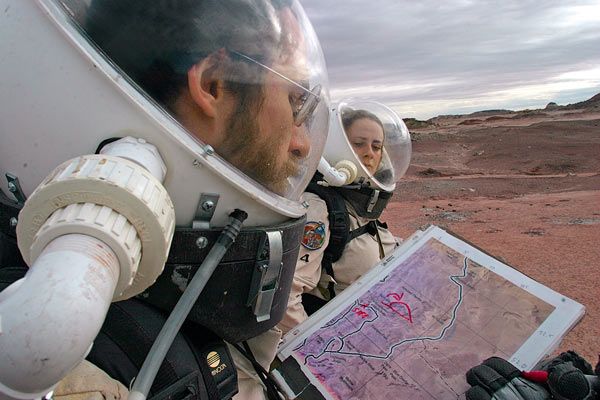Learning to Live on Mars: Scientists Develop a Fatigue Management Program
Last reviewed: 23.04.2024

All iLive content is medically reviewed or fact checked to ensure as much factual accuracy as possible.
We have strict sourcing guidelines and only link to reputable media sites, academic research institutions and, whenever possible, medically peer reviewed studies. Note that the numbers in parentheses ([1], [2], etc.) are clickable links to these studies.
If you feel that any of our content is inaccurate, out-of-date, or otherwise questionable, please select it and press Ctrl + Enter.
In early August this year on Mars, the team of the rovers "Curiosity", which analyzes the surface of the red planet, is conducting research work.
A team of scientists on Earth is trying to figure out how the Martian days that are longer than our, terrestrial, for 40 minutes can affect the human body.

Scientists are sure that the difference of 40 minutes can cause disruptions in internal biological circadian rhythms of man.
Scientists from the Brigham Women's Hospital developed and studied a program that can manage human fatigue, and also coordinate the work of all body systems in the event of such a disruption in the rhythm of life.
The results of the team of scientists were published in the journal "Academic Medicine".
Dispatchers who control the location of Mars rover team "Curiosity", are connected with the expedition on Martian time. Such an unusual schedule causes some inconveniences and problems, because our internal biological clock is tuned for 24 hours, and not at 24.65 hours, that is, they are focused on changing the light and dark time. It is very difficult for people to fall asleep, wake up and work in this mode.
"Our study was aimed at studying the effectiveness of the control program and on how much the team can learn to quickly" reset "their biological clocks, improve the quality of sleep, work and learn to concentrate in those conditions," says study lead author Stephen Lockley.
Specialists studied the state of 19 staff members who stayed on missions for more than 11 weeks. With the help of a device that was worn by every member of the team on the wrist, scientists could record their health. The subgroup of participants in the experiment also received portable devices that produced blue light in order to enable them to quickly "reboot" the body system and improve its performance.
According to the data received, most astronauts were able to adapt to the rhythm of life on Mars.
"Despite the fact that it is hard for a person to adapt to the 24.65-hour day cycle, our study could provide the basis for developing and improving programs aimed at managing fatigue," says physiologist Laura Bargrat. "This program can significantly reduce the impact of the daily duration of the red planet on a person."

 [
[